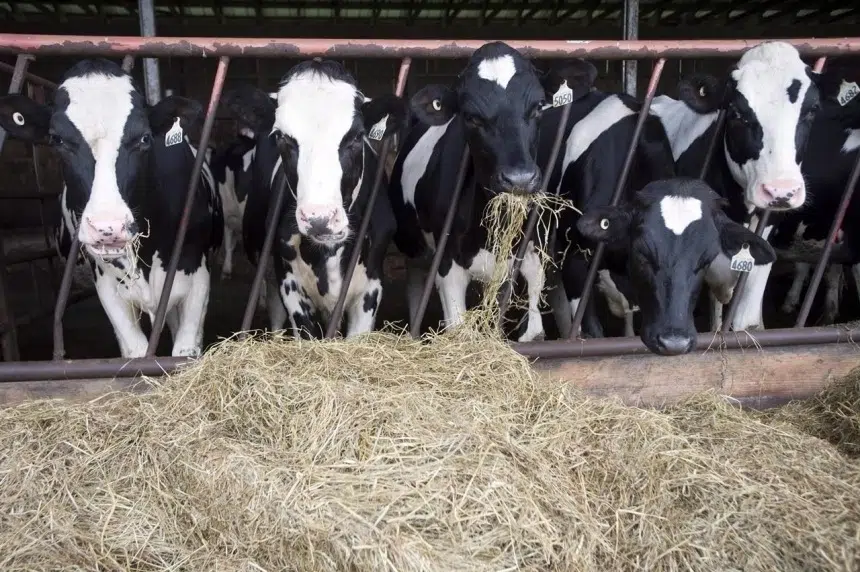Cattle and dairy producers in Saskatchewan say they’re generally OK with the new food guidelines released by Health Canada Tuesday.
According to the guidelines, Canadians should eat vegetables, fruits and whole grains and should choose plant-based proteins — such as legumes, nuts and tofu — more regularly.
They also stress that people make water their beverage of choice in order to stay hydrated without consuming calories.
The recommendations emphasize that certain food undermine healthy eating, which may lead to chronic disease; those include processed and prepared foods high in sugar, salt and saturated fat.
The CEO for the Saskatchewan Cattlemen’s Association says the new grouping of beef with plant-based proteins is good because it makes for a more competitive environment for cattle producers.
“That reflects the diversity of choice we’ve got. We’re pretty lucky these days,” Ryder Lee said.
He added that the health agency’s photo that depicts the suggested amounts of the foods is a good thing.
“Half the vegetables, a quarter protein and a quarter carbs; that’s a good-looking plate, and beef features very well in there,” Lee said.
The guidelines do emphasize leaner meat, but Lee said that likely won’t have a recognizable impact on the province’s beef producers.
He said there are about 12,000 in Saskatchewan, depending on the year. That can include farmers with a small group of 25 heads, up to giant feedlots that have 25,000 heads of cattle.
Similarly, Sask. Milk, which represents the province’s 165 dairy farmers, says it’s mostly OK with the new guidelines.
But policy and communications manager Joy Smith says the group is somewhat disappointed with the Health Canada’s emphasis on low-fat dairy products over what she calls full-fat ones.
“There’s no evidence showing that low-fat dairy, for example, is better than full-fat dairy. The science just doesn’t support that,” she said.
Smith touted animal-proteins, like those found in milk and dairy, as being superior in some ways over plant-based proteins.
“There’s higher protein content, better protein digestibility and more balanced content of essential amino acids,” she said.
The fact that Health Canada included dairy as a good source of protein and grouped it with other protein-based foods like beef is a good thing, she said.
Of Saskatchewan’s 165 dairy farmers, the average size of each is about 170 cows per farm.







